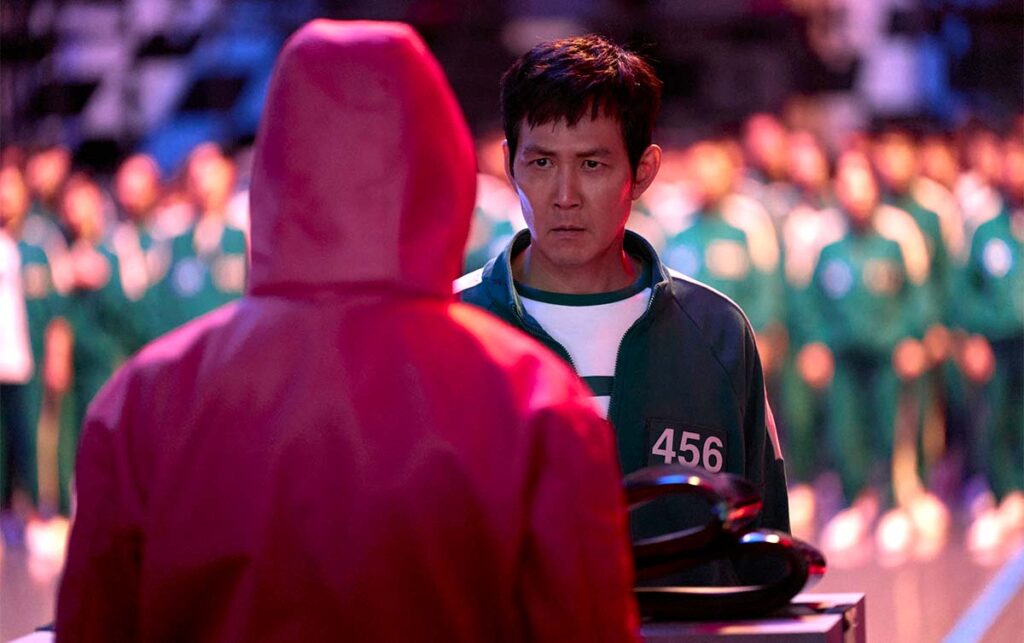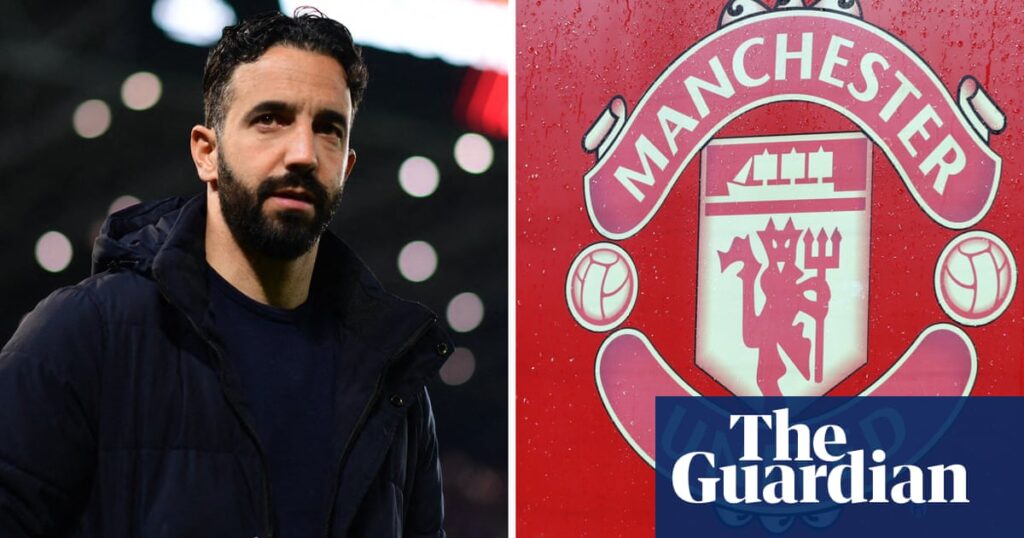Considering it premiered over three years ago, you’d be forgiven for forgetting how much of a cultural force “Squid Game” was at the outset. It’s hard to overestimate just how quickly, and forcefully, the South Korean show entered the zeitgeist. Halloween costumes, SNL skits, and even a reality show followed, all while fans waited for the next season to drop. It’s not exactly that the show even called for a follow-up, with an ending that split the difference between conclusive and cliffhanger. Instead, it seemed more like an inevitability that Netflix wouldn’t let this one slip away.
Yet, with the premiere of season two, it also feels like Netflix is trying to manufacture the same grassroots viral-ness. Every time I search “Squid Game” on Google, for example, I’m prompted into a mobile game of “Red Light, Green Light.” For a show that both critiqued and reveled in the intersection of capitalism and violence, it’s truly confounding to see both Dominos and KFC run deals themed around the show. But, it was also more than a little surprising that Netflix green-lit a reality show, when the original seemed so obviously to lambast the entertainment forces that commoditized others’ suffering.
I, for one, never watched the first season when it was released. Looking back, I honestly cannot say why I missed the boat on this one. Perhaps it was some counter-cultural need not to watch the most popular thing or, more likely, an inability to keep up with cultural touchstones because of an oversaturated market and only so many hours in the day. Thus, agreeing to review season two also meant catching up on season one; this led to a somewhat disorienting experience some three years removed from the premiere. I finally know what those weird costumes mean, and why Lee Jung-jae became a genuine star in the aftermath of its release.
But it also meant consuming two seasons of television back to back, outside of the real-world wait between seasons. With that, I guess the only question that’s on anyone’s mind is: does it hold up? The answer is a bit complicated. If season one was novel and rollicking —“Battle Royale” for the reality competition generation — the second season both expands the mythos while also playing the hits. Don’t worry, there are more games, more killings, and a number of interesting and compelling new contestants.
We also see Seong Gi-hun (Jung-jae) back in the games, attempting to take down the operation from the inside, after spending a few years trying to find the Recruiter (Gong Yoo) and the Front Man (Lee Byung-hun) who were responsible for orchestrating everything. How these characters intersect, and how Gi-hun makes his way back to the island is best left unspoiled, but suffice to say Player 456 finds himself competing in games both old and different. While he doesn’t care about the prize money, he does want to convince the other debt-ridden contestants that their lives are worth more than the games offer.
READ MORE: The 100 Most Anticipated Films Of 2025
But, whereas the first season felt like a complete story —Seong Gi-hun won the game, after all, and was ready to begin a new life in the US — season two is only preamble to the already announced final third season. It’s probably not a major spoiler to say that this season doesn’t end as neatly but, instead, in the middle of the action — on a cliffhanger that feels like it should be in between episodes, not seasons. Perhaps this is a mandate from a streamer that seems bent on recreating the experience of episodic viewing in everything but actually releasing their episodes weekly. But, no matter what, the season feels incomplete.
It also feels like a retread, for better and worse. We see different games, different contestants, but the same results. The only major difference here is that we know how the games work, who they are for, and why 456 is playing. His pre-existing knowledge comes in handy as they work their way through the games. We also get a new crop of contestants, including a mother and son, a pregnant woman, a crypto-bro, and rapper — all of whom are more or less the sum of their occupations than they are fully fleshed-out characters.
READ MORE: The 20 Best Films Of 2024
Removed from the fervor of its initial launch, “Squid Game” season one still feels like a cross-cultural revelation. It was both culturally specific and universal in its story of the have and the have-nots. In season two, we’ve downgraded, if ever slightly. While it’s still a perverse wonder to see the games, and the social-experiment approach that comes from putting people into life-or-death experiences, the novelty has nevertheless worn off.
Get the latest news, reviews, interviews, and podcasts from The Playlist right in your Inbox. Sign up for The Playlist Newsletter today.
That’s not to say that season two isn’t worth watching, because it really is. Instead, it’s to perhaps suggest that “Squid Game” has gone the way of the Hollywood blockbuster. A little louder, a little less interesting, but also fundamentally entertaining, even if it sometimes feels like leftovers. [B]


